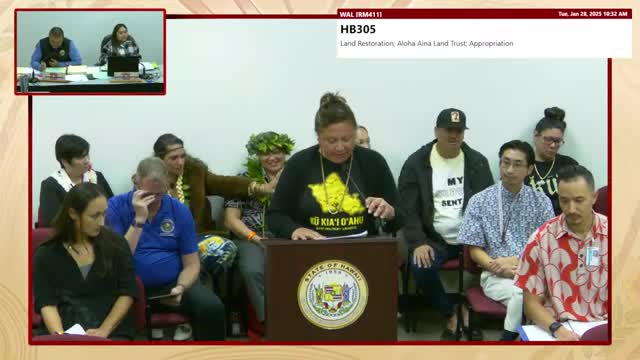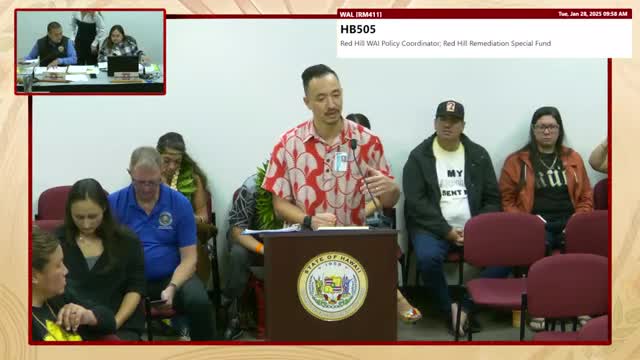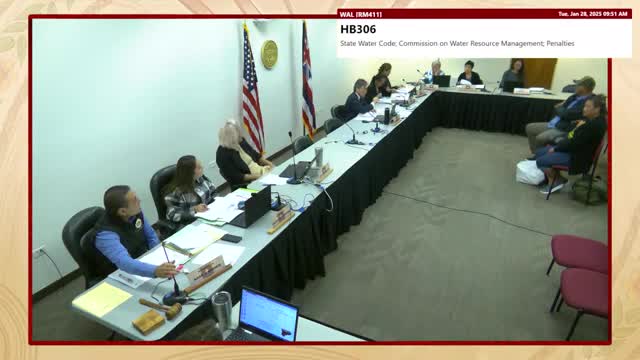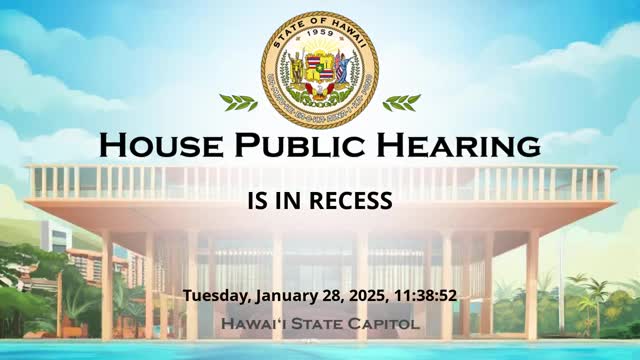Article not found
This article is no longer available. But don't worry—we've gathered other articles that discuss the same topic.

Public testimony urges return of military-leased lands; committee defers bill to allow further work

Committee advances bill to fund Red Hill remediation and sustain oversight

House panel hears sharp concerns about proposed jump in water-code penalties

